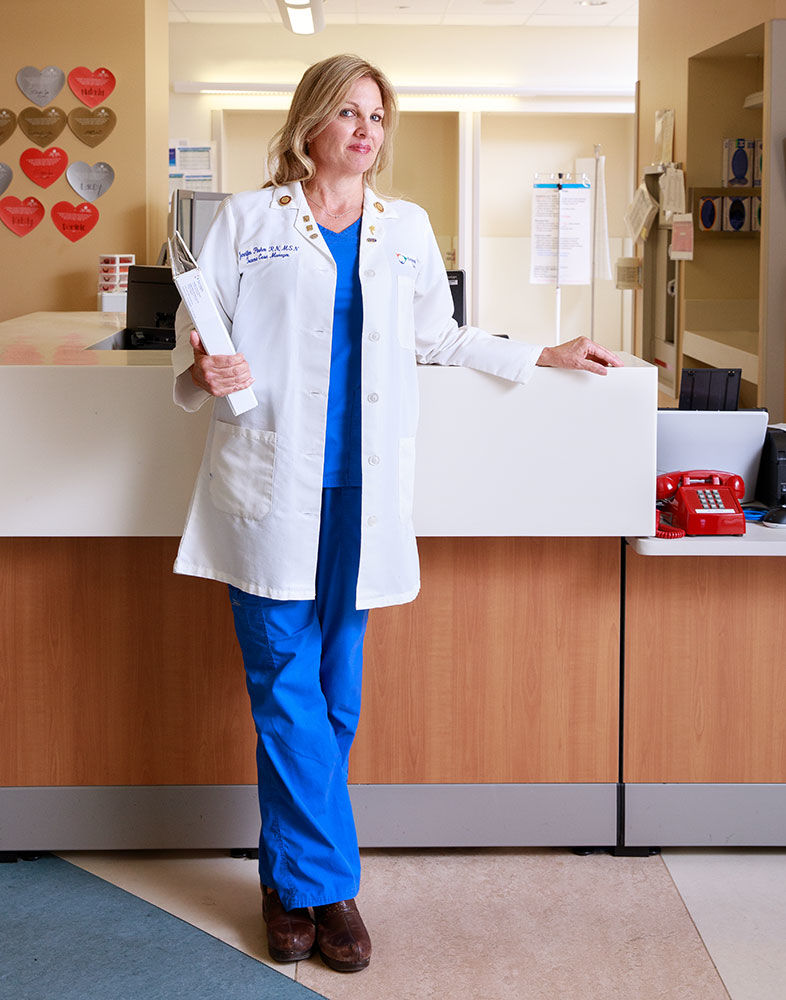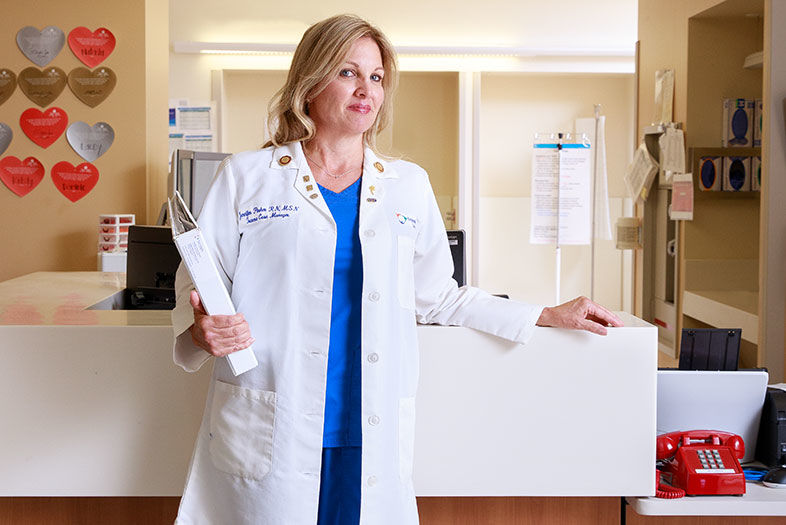
San Diego Hero: Jennifer D. Parker
Jennifer D. Parker | Trauma Case Manager, Scripps Memorial Hospital La Jolla
Early in her 30-year career, while working in orthopedic surgery and later in a head injury unit, Jennifer Parker knew she was doing something right when the most difficult cases—severe head traumas from falls, blunt traumas from assaults, spinal cord injuries from pool and ocean accidents—were consistently assigned to her. Because of her proven track record treating and getting along with these patients, she was invited to work as a case manager for Scripps Memorial Hospital La Jolla’s trauma department—a unique role that doesn’t exist in many trauma centers. That was 18 years ago.
A typical workday may include time in the intensive care unit to help determine the identity of unknown patients, and later to notify family members of their loved one’s critical injuries. She also holds end-of-life conferences to discuss dire medical decisions. “It’s up to the patients and families to make these decisions, but we make every effort to find out if the patient has an advance directive, and we discuss as a team what the patient would want for themselves,” Parker says.
During these conversations she’s often armed with “tissues and lots of hugs,” but most important is empathy. “I was raised by a mother who is very in tune with others’ feelings, so I’m sensitive by nature. I’m also the oldest of five kids, and my mom was a single mother. I needed to help her care for my brothers, so I was a caretaker starting at a very early age. I’ve always been good at comforting people, not only physically but emotionally. People don’t want to feel like you’re just going through the motions of doing your job—they want to know that you really care.”
Which means she becomes very close with the families of her patients, following them from admittance to discharge. Her department even holds a special reunion event every December for trauma patients who survived against all odds, which is an opportunity for her to reconnect with them. “That’s what’s awesome about the annual reunion,” she says. “We send them off to physical therapy when they still look horrible, and then later we’re able to see them after they’ve recovered. We’ve seen amazing miracles from people who almost died.”
One such case involved an 18-year-old with a devastating brain injury from a motor vehicle crash. Parker was his case manager for months in the hospital. “I think everyone involved believed he would not survive, and if he did, he’d be in a persistent vegetative state.”
The patient not only pulled through, but is now living a full, normal life. Parker is still in touch with both him and his mother. When delivering tough news to families, she stays focused on the task at hand to avoid getting too emotionally overwhelmed. “I have four kids, so seeing patients who are around my boys’ ages always hits me the hardest,” she says. “Suicides and self-inflicted gunshot wounds are also really tough—that’s when it stirs all the emotions.”
Because of patient privacy laws, she can’t discuss the details of her cases with family and friends when she finishes work for the day (after particularly tough cases, her department holds debriefings to help the staff cope), which forces her to completely shift gears when off the clock.
PARTNER CONTENT
In her office, Parker maintains a large collection of donated medical supplies, such as walkers for those who can’t afford them, and clothing for those who don’t have anything to wear home from the hospital. “I never tire of helping patients and their families,” she says. “I do all I can to make things easier, to alleviate worry and stress, and provide support.”








